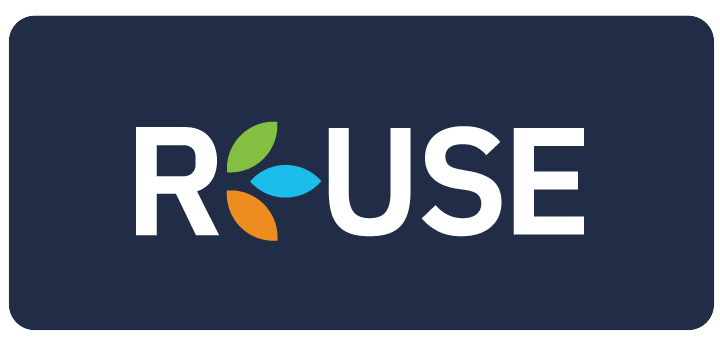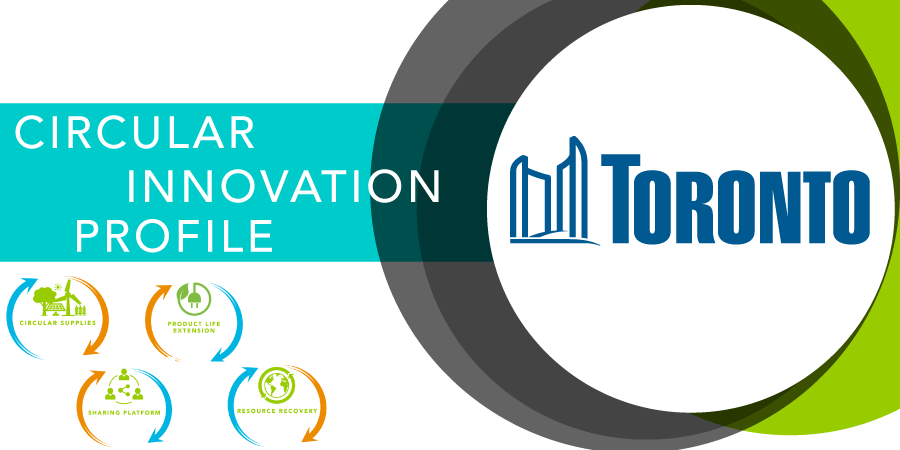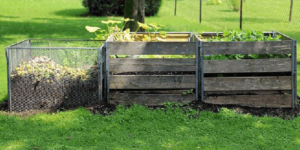
Circular Innovation Profiles is our feature series that showcases innovators and individuals that are helping to accelerate Canada’s circular economy by adopting circular business models and solutions.

Cities have an incredible opportunity to drive positive environmental, economic, and social outcomes. By adopting circular principles, we can transition our modes of production and consumption in ways that limit our carbon footprint, reliance on non-renewable resources and use of toxic substances, and maximize the resource value of materials, help to regenerate natural systems and design out waste and inefficiency.
According to UN Habitat, cities consume 78 per cent of the world’s energy and produce more than 60 per cent of greenhouse gas emissions, but account for less than 2 per cent of the Earth’s surface. With urban populations expected to increase by 2.5 billion people by 2050, resource consumption of cities is expected to more than double by the middle of the century.
To drive innovation and the growth of a circular economy in Toronto, we established a Circular Economy & Innovation Unit within the Solid Waste Management Services Division that is involved in research and planning, as well as incorporating circular economy principles into City programs, policies, procurement, and processes.
 In the spirit of Product Life Extension, the Urban Harvest Program provides opportunities to learn about the basics of food preservation with 215 canning and preserving workshops taking place through the end of 2020.
In the spirit of Product Life Extension, the Urban Harvest Program provides opportunities to learn about the basics of food preservation with 215 canning and preserving workshops taking place through the end of 2020.
It also helps reduce food waste and benefit the broader community by collecting surplus fruits and vegetables from residents’ backyards and redistributing them to local food banks and programs with 3,432 pounds of surplus fruits and vegetables redistributed as of the end of 2020 through the program.
 The Sewing Repair Hub Program offers virtual and in-person sewing classes to repair clothing and textiles, and has diverted 1,379 kilograms of clothing and textiles from landfill.
The Sewing Repair Hub Program offers virtual and in-person sewing classes to repair clothing and textiles, and has diverted 1,379 kilograms of clothing and textiles from landfill.
Additionally, the Bicycle Repair Hub Programs offer communities the opportunity to expand their skills and fix and maintain a sustainable and healthy mode of transportation, with 3,500 bikes repaired or refurbished.
Community Composting Programs across the city leverage Resource Recovery and Circular Supplies to create a valuable gardening nutrient.

The program provides composters and information about composting techniques to residents at existing and new community gardens, along with the tools, equipment, and supplies needed to compost yard waste. It also serves as an opportunity to learn about the importance of reducing food waste and the benefits of composting.
As of the end of 2020, 1,212 composting workshops have taken place and 132,920 pounds of carbon dioxide saved annually.

Sharing and Reuse Space Programs engage Product Life Extension and Sharing Platforms by engaging the community to reuse, share, and repair items to prolong their life. Through the end of 2020, 5,420 items have been repaired/repurposed and 2,565 share reuse workshops have taken place.
For the City of Toronto to become Ontario’s first circular city it’s important that we engage residents, as well as the businesses and agencies we work with. At the end of the day collaboration drives success and we love working with everyone.
We have also been a long-time supporter of the circular innovation council as we share a similar mission and vision to foster a circular economy. Their public initiatives like Waste Reduction Week in Canada offer an important touchpoint to engage residents and communities on important messaging, and their work on circular procurement offers connections and learning so that we can join with other jurisdictions in Ontario and Canada as well.
Receive selected updates of our activities happening across Canada and the World:
Circular Innovation Council is a registered charity.
Charity Registration Number: 119112118 RR 0001